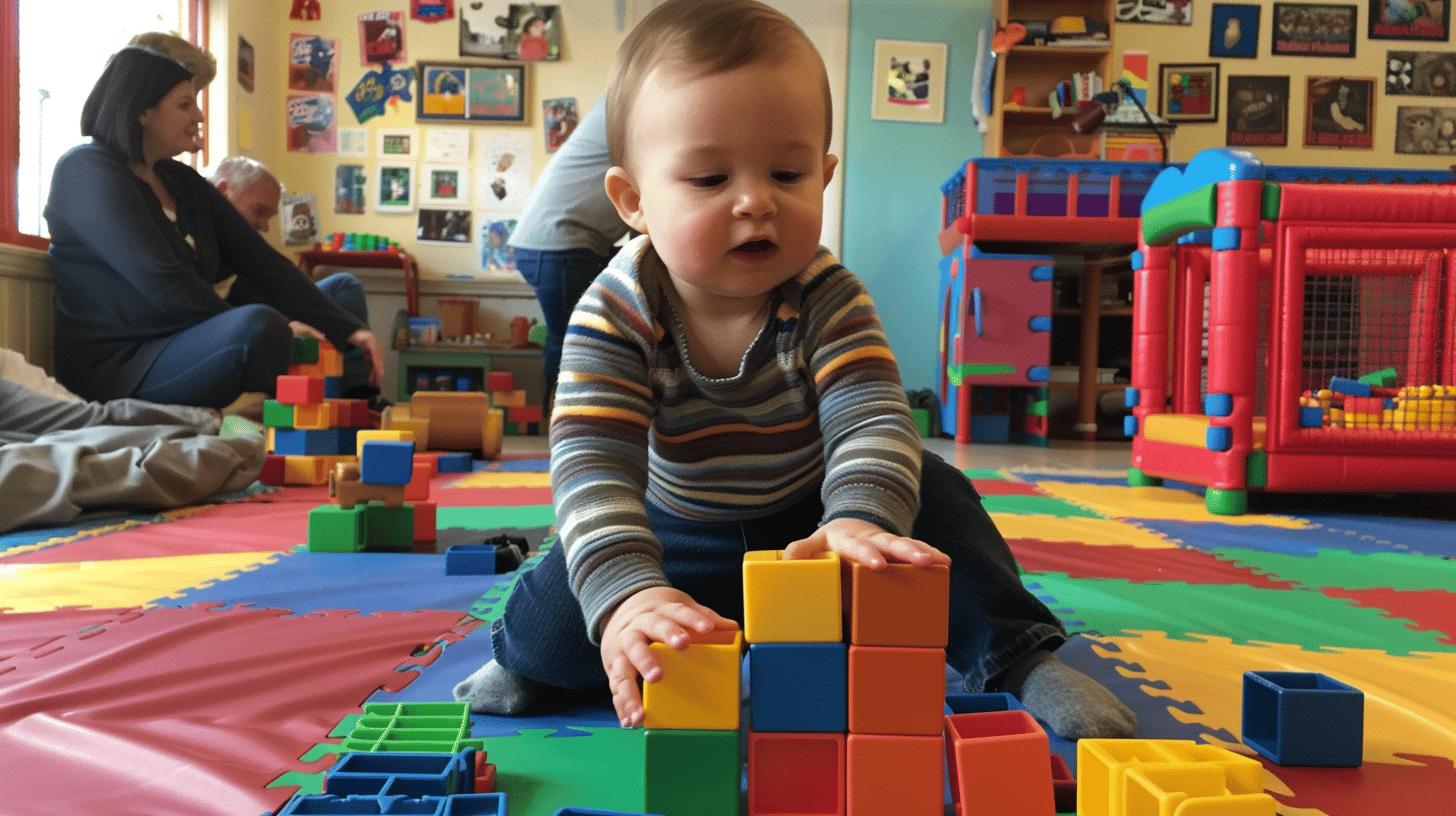Ever wondered why some people breeze through life’s challenges while others struggle? The answer might lie in how they handled their developmental tasks. Developmental tasks are crucial milestones individuals need to achieve at different life stages. Mastering these tasks shapes our social, emotional, and cognitive skills, setting the foundation for a successful life. Dive into this article to discover what developmental tasks are, their origins in psychology, and why they matter. Understanding these concepts can offer valuable insights into human growth and help in raising happy, healthy children.
What Are Developmental Tasks?
Developmental tasks are specific social, emotional, cognitive, and physical skills that individuals need to acquire or master during different stages of life. These tasks are crucial for successfully navigating various phases of development, from infancy to adulthood. Each task helps individuals to build the necessary foundation for the next stage, ensuring overall well-being and growth.
Robert J. Havighurst coined the term 'developmental tasks' in 1948. His theory emphasizes that these tasks arise from three sources: physical maturation, personal values, and societal pressures. Erikson's theory further suggests that each developmental stage presents a crisis resulting from an individual-environment collision. Successfully resolving these crises leads to positive outcomes, while failure leaves individuals vulnerable to environmental pressures.
- Havighurst's Developmental Tasks Theory
- Erikson's Psychosocial Development Theory
- Piaget's Cognitive Development Theory
- Vygotsky's Sociocultural Theory
- Freud's Psychosexual Development Theory
Failing to complete developmental tasks can have significant implications. Individuals may struggle to achieve essential life skills, leading to difficulties in social, emotional, and cognitive development. This vulnerability can make it challenging to cope with environmental pressures and may hinder overall progress in later life stages. Understanding and addressing these tasks are essential to foster healthy development and well-being.
Erikson's Developmental Tasks and Stages

Erikson's theory of psychosocial development outlines eight stages, each characterized by a specific crisis that individuals must resolve to achieve positive outcomes. These stages emphasize the importance of social relationships and the environment in personal development. Successful resolution of each crisis leads to the development of essential life skills, such as trust, autonomy, and identity.
Trust vs. Mistrust
In the first stage, Trust vs. Mistrust, which occurs during infancy, the primary task is the development of trust. Infants learn to trust their caregivers to meet their needs. Successful resolution of this stage results in a sense of security and confidence in the world. Failure to develop trust can lead to feelings of fear and suspicion, impacting future relationships.
Autonomy vs. Shame and Doubt
The second stage, Autonomy vs. Shame and Doubt, occurs during early childhood. During this period, children strive for autonomy by exploring and making choices. When caregivers encourage independence while providing appropriate boundaries, children develop self-esteem and confidence. Conversely, overprotective or critical caregivers can lead to feelings of shame and doubt, affecting the child's ability to act independently in the future.
Identity vs. Role Confusion
The fifth stage, Identity vs. Role Confusion, takes place during adolescence. This stage is crucial for identity formation, where individuals explore different roles and integrate them into a coherent self-image. Successfully resolving this crisis results in a strong sense of identity and direction. Failure to achieve a stable identity can lead to confusion about one's role in society and difficulty in making future life choices.
Havighurst's Developmental Tasks Across Life Stages
Robert J. Havighurst proposed that developmental tasks arise from physical maturity, personal values, and societal pressures. Each life stage comes with specific tasks that individuals must master to progress successfully. These tasks range from basic survival skills in early childhood to managing significant life events in senior years.
Early Childhood (0-5 years)
In early childhood, developmental tasks focus on learning basic survival skills. These include walking, talking, and eating independently. These tasks are universal across cultures and form the foundation for future learning and development. Mastery of these skills builds confidence and sets the stage for more complex tasks.
Middle Childhood (6-12 years)
During middle childhood, the focus shifts to expanding knowledge and social roles. Children learn to read, write, and perform arithmetic. They also start to understand societal norms and develop friendships. Successfully navigating these tasks helps build self-esteem and social competence, crucial for later stages.
Adolescence (13-17 years)
Adolescence is characterized by the crises of self-identity and autonomy. Teenagers explore different roles and ideologies to form a coherent self-concept. This period also involves gaining independence from parents while maintaining healthy relationships. Successful resolution leads to a strong sense of identity and direction in life.
Early Adulthood (18-35 years)
In early adulthood, individuals implement skills acquired in earlier stages into their careers and relationships. Key tasks include establishing a career, forming intimate relationships, and possibly starting a family. Achievement in these areas contributes to a sense of accomplishment and stability.
Middle Age (36-60 years)
Middle age involves dealing with established careers and family responsibilities. Individuals often focus on maintaining job performance, nurturing relationships, and supporting children. This stage also includes coping with aging parents and planning for retirement. Success in these tasks provides a sense of fulfillment and legacy.
Senior (60+ years)
In senior years, the focus is on encountering significant life events and psychological challenges. Tasks include adjusting to retirement, dealing with health issues, and coping with the loss of loved ones. Successfully navigating these challenges fosters a sense of integrity and wisdom, contributing to overall life satisfaction.
Examples of Developmental Tasks in Childhood and Adolescence

During infancy, a developmental task is learning to trust their environment, a foundation for later emotional security. Toddlers work on balancing independence with parental security, which involves exploring their surroundings while relying on caregivers. Preschoolers engage in planning and carrying out tasks, developing a sense of accountability. School-age children start to follow and internalize rules, learning to develop social skills and friendships.
Adolescents face the critical task of establishing their own identity and navigating peer relationships. This stage involves exploring different roles and ideologies to form a coherent self-concept. They also strive for autonomy from parents while maintaining healthy relationships, which is essential for building a stable identity and direction in life.
| Age Group | Developmental Tasks |
|---|---|
| Infants | Learn to trust their environment |
| Toddlers | Balance independence with parental security |
| Preschoolers | Plan and engage in tasks, develop accountability |
| School-age | Follow and internalize rules, develop social skills |
| Adolescents | Establish own identity, navigate peer relationships |
The Importance and Educational Implications of Developmental Tasks
Developmental tasks are essential for understanding human growth and maturation. These tasks, which vary by life stage, help individuals acquire necessary social, emotional, cognitive, and physical skills. Mastering these tasks builds a foundation for future success and well-being, ensuring that individuals can navigate life's challenges effectively.
In educational settings, developmental tasks have significant implications. Schools and educators can support task achievement through tailored interventions. For instance, a curriculum designed to match developmental stages can enhance learning outcomes. Behavioral support in classrooms can address individual needs, promoting positive social and emotional growth. Facilitating peer interactions helps students develop critical social skills, essential for their overall development.
- Curriculum Design: Aligning educational content with developmental stages.
- Behavioral Support: Providing individualized support to address specific needs.
- Peer Interaction Facilitation: Encouraging collaboration and social skill development.
- Parental Involvement: Engaging parents to support tasks at home.
- Extracurricular Activities: Offering programs that promote diverse skill development.
Addressing developmental tasks in education has real-life applications and benefits. It promotes holistic growth, preparing students for future challenges. By focusing on these tasks, educators help students build resilience, adaptability, and a strong sense of identity, contributing to their long-term success and well-being.
Final Words
Understanding what developmental tasks are helps in comprehending human growth stages. From Havighurst's developmental task theory to Erikson's psychosocial stages, each framework adds depth to our understanding.
The importance of these tasks in educational settings reinforces the need for tailored interventions. Realizing the educational implications allows for promoting social, emotional, and cognitive growth effectively.
By mastering these developmental tasks, individuals are better equipped to handle life challenges and thrive. Embracing this knowledge fosters a supportive environment for all stages of development.
FAQ
What is a developmental task in psychology?
A developmental task in psychology refers to specific social, emotional, cognitive, and physical skills that individuals need to acquire or master at different life stages to function effectively.
What is a developmental task in education?
In education, a developmental task involves mastering skills and behaviors necessary for academic success, social interaction, and emotional well-being, tailored to different developmental stages.
What are developmental tasks? Explain by giving examples.
Developmental tasks are specific skills and behaviors that individuals must master at different stages of life. Examples include learning to walk and talk in childhood, developing social skills in adolescence, and achieving career proficiency in adulthood.
What are developmental tasks? Provide examples.
Developmental tasks include learning to trust in infancy, achieving autonomy in early childhood, and forming a stable identity during adolescence.
What are the five main developmental tasks of adolescence?
The five main developmental tasks of adolescence are establishing personal identity, achieving independence from parents, forming close peer relationships, developing capacity for intimacy, and preparing for future roles.
What is a developmental task in adolescence?
A developmental task in adolescence involves forming a unique identity, gaining independence, developing peer relationships, and planning for adult roles.
What is the meaning of a developmental task?
A developmental task is a skill or behavior that an individual needs to develop to meet social, emotional, and cognitive demands at different life stages.
What are the developmental tasks of students?
Developmental tasks of students include achieving academic competence, forming friendships, developing self-regulation, and preparing for future educational or career paths.
What is a family developmental task?
A family developmental task refers to roles and skills that a family unit must develop to function effectively, such as establishing routines, supporting members' growth, and managing transitions.
What are the 11 developmental tasks?
The 11 developmental tasks span across various life stages and may include tasks like learning basic motor skills, developing peer relationships, achieving academic goals, forming intimate relationships, and planning for retirement.
What are the eight developmental tasks of adolescence?
The eight developmental tasks of adolescence include achieving independence, forming a stable identity, building peer relationships, developing emotional intimacy, acquiring vocational skills, accepting physical changes, managing emotions, and establishing personal values.


